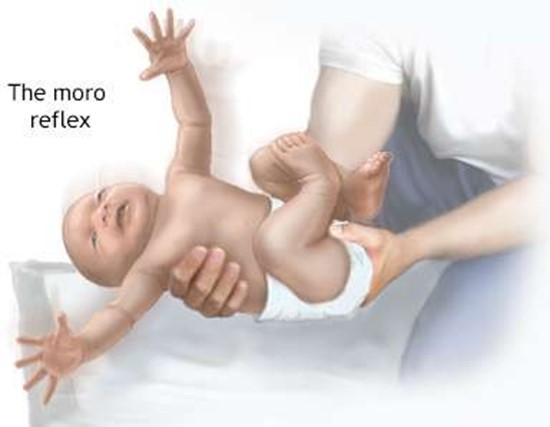A nurse is caring for a preschooler immediately following a tonsillectomy and notices the child swallowing frequently.
Which of the following actions should the nurse take?
Check the back of the throat with a pen light.
Obtain the child’s vital signs in 15 min.
Administer analgesia.
Offer the child a drink of water.
The Correct Answer is A
A. Frequent swallowing after a tonsillectomy may indicate postoperative bleeding. The nurse should check the back of the throat with a pen light to assess for signs of hemorrhage.
B. While obtaining vital signs is important, it does not directly address the concern of potential bleeding.
C. Administering analgesia is appropriate for pain management but does not address the priority concern of bleeding.
D. Offering water could potentially worsen bleeding if it is occurring and should not be the first action.
Nursing Test Bank
Naxlex Comprehensive Predictor Exams
Related Questions
Correct Answer is D
Explanation
Place the newborn on a flat surface and clap hands loudly.

This action will elicit the Moro reflex, also known as the startle reflex, which is a normal, involuntary reaction that newborns and infants have when they’re startled. In response to the sound, the baby will throw back his or her head, extend out his or her arms and legs, cry, then pull the arms and legs back in.
Choice A is wrong because placing the newborn on their abdomen and observing the movement of their extremities will not trigger the Moro reflex.
This position may elicit other reflexes such as the crawling reflex or the tonic neck reflex.
Choice B is wrong because stroking the newborn’s cheek toward their mouth will not trigger the Moro reflex. This action will elicit the rooting reflex, which helps the baby find the breast or bottle to start feeding.
Choice C is wrong because stroking upward on the lateral aspect of the newborn’s foot will not trigger the Moro reflex. This action will elicit the Babinski reflex, which causes the big toe to extend upward and the other toes to fan out.
Correct Answer is B
Explanation
Justice is the ethical principle of treating the patient fairly and equally among staff when making assignments. The charge nurse is upholding this principle by ensuring that the workload is distributed evenly and that no staff member is overburdened or underutilized.
Choice A is wrong because Veracity is wrong because veracity is the ethical principle of telling the truth to the patient.
This principle is not relevant to the scenario of making assignments.
Choice C is wrong because Autonomy is wrong because autonomy is the ethical principle of respecting the patient’s right to make their own healthcare decisions.
This principle is not relevant to the scenario of making assignments.
Choice D is wrong because Fidelity is wrong because fidelity is the ethical principle of keeping promises to the patient.
This principle is not relevant to the scenario of making assignments.
Whether you are a student looking to ace your exams or a practicing nurse seeking to enhance your expertise , our nursing education contents will empower you with the confidence and competence to make a difference in the lives of patients and become a respected leader in the healthcare field.
Visit Naxlex, invest in your future and unlock endless possibilities with our unparalleled nursing education contents today
Report Wrong Answer on the Current Question
Do you disagree with the answer? If yes, what is your expected answer? Explain.
Kindly be descriptive with the issue you are facing.
